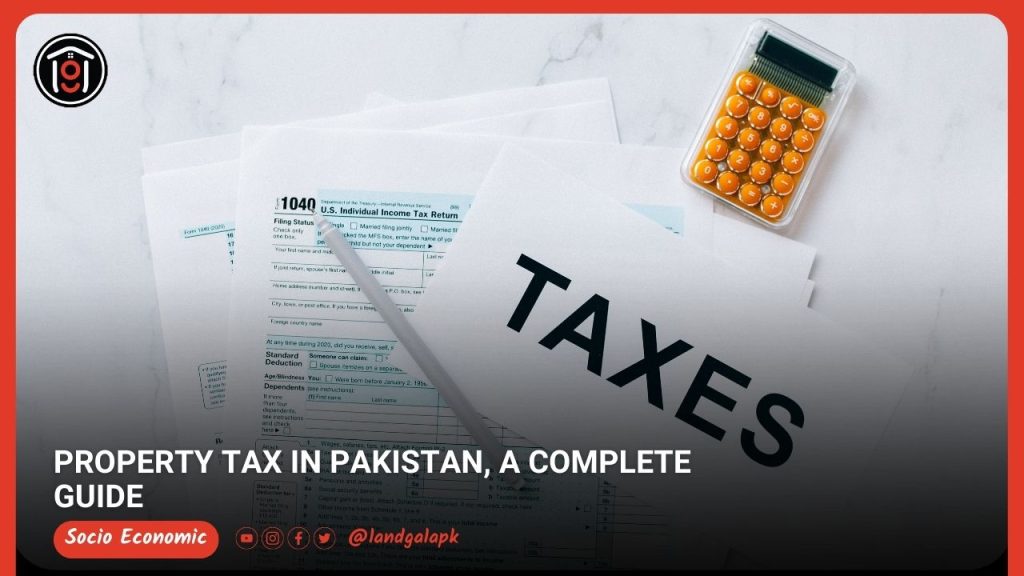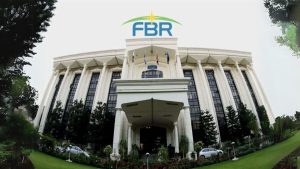A tax is a compulsory financial charge that the government imposes on a taxpayer. Collecting taxes and fees is a fundamental way for countries to generate public revenues that make it possible to finance investments in human capital, infrastructure, and the provision of services for citizens and businesses. Next to being a source of revenue, taxation is a powerful tool for stimulating development in a country. Property Tax in Pakistan is a major source of govt revenue.
According to World Bank, countries collecting less than 15% of GDP in taxes must increase their revenue collection in order to meet the basic needs of citizens and businesses. This level of taxation is an important tipping point to make a state viable and put it on a path to growth.
In this blog, Landgala will discuss the types and rates of taxes on the sale/purchase of property in Pakistan. For lattest Real Estate news please visit our website www.landgala.com
Types of Taxes on property Sale/purchase in Pakistan.
- Capital Value Tax (CVT)
- Stamp Duty (SD)
- Withholding Tax (WHT)
- Capital Gain Tax (CGT)
Capital Value Tax on purchase of Property
As the name suggests, Capital value tax is collected on the capital value of an asset. It is a provincial tax and is payable by the buyer at the time of registering the transfer of property. The rate of CVT is 2% of the recorded value of the property. However, transfer of property between parents, spouse, or any blood relatives, either as a gift or through inheritance, is not subject to levy of CVT. In cases where it is a gift or exchange, or where property value is not mentioned in the transaction, the value of the property is calculated according to the valuation tables or DC rates.
Stamp Duty on purchase of property
Stamp Duty is paid under the Stamp Act 1899 at 3% of the DC rates of the property. SD is also a provincial tax. It is basically paid on the legal document at the time of buying property. It is paid by the buyer.
withholding tax on property
Withholding tax is a Federal Tax and is payable by both seller and buyer. Under section 236C of Income Tax Ordinance 2001, the registering authority collects it at 2% from the seller if he is on the active taxpayer’s list (ATL) and at 4% if he is not on ATL.
Under section 236K of Income Tax Ordinance 2001, it is collected by the registering authority at 2% from the buyer if he is on the active taxpayer’s list (ATL) and at 7% if he is not on ATL.
For removal of doubt, it is clarified that the person responsible for registering, recording, or attesting transfer includes the person responsible for registering, recording, or attesting transfer for the local authority, housing authority, housing society, co-operative society [public and private real estate projects registered/governed under any law, joint ventures, private commercial concerns] and registrar of properties.
One thing is of utmost importance to learn that WHT is an advance tax and one can adjust it against the payable income tax of the individual and also against the Capital Gain Tax of the seller.

Capital Gain Tax on sale of property
Capital gain tax under section 37(1A) is levied on the difference between the sale price and purchase price of the property. The registration authorities are not authorized to collect such capital gain tax on immovable property. Hence capital gain tax on the sale of immovable property is to be paid by the taxpayer himself while filing the income tax return. For example, if any sale of immovable property is made in the financial year from July 2022 to June 2023, the taxpayer while filing the income tax return for the tax year 2023 shall pay the capital gain tax after adjusting the advance tax paid under section 236C.
holding period Concession for cGT
Before Finance Act 2022, the gain arising on the disposal of immovable property after the holding period of 4 years was exempt from tax. Now the holding period concession will separately apply which for open plots is six years, for the constructed property is four years and for flats is two years. Further, the whole amount of gain on disposal of immovable property will be taxable at graduated rates provided in Division VIII of Part I of the First Schedule of the Ordinance given as under:
For more details regarding this topic you can visit www.fbr.gov.pk
Rates of CGT for holding period
The concessional taxation regime for capital gains is applicable only to the disposal of immovable properties situated in Pakistan. The benefit of a holding period and concessional rate of tax is not available in respect of capital gains arising on the disposal of immovable property situated outside Pakistan.
Furthermore, to streamline the capital gains taxation regime, the concessions earlier available under sub-section (3) and (3A) of section 37 in terms of reduction in capital gain by certain percentages on disposal of capital assets held for more than one year is also withdrawn.
To learn more about your real estate queries please visit landgala.com





